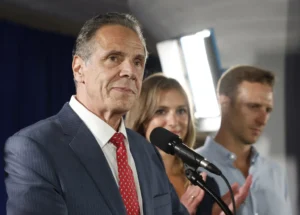Trump Revives ‘Most Favored Nation’ Drug Pricing Plan
In a significant move to address the escalating costs of prescription drugs, President Donald Trump has reintroduced the “Most Favored Nation” (MFN) policy. This initiative aims to align Medicare drug prices with the lowest prices paid by other developed nations, potentially leading to substantial savings for American seniors.
Understanding the ‘Most Favored Nation’ Policy
The MFN policy is designed to ensure that Medicare pays no more for prescription drugs than the lowest price available in comparable countries. This approach targets high-cost medications, particularly those administered by healthcare providers under Medicare Part B. By benchmarking U.S. drug prices against international standards, the policy seeks to reduce the financial burden on both the government and Medicare beneficiaries.
Historical Context and Revival
Initially proposed during Trump’s first term, the MFN policy faced legal challenges and was ultimately blocked by a federal court in 2021. The subsequent administration chose not to pursue the policy further. However, with rising concerns over drug affordability, President Trump has signed an executive order to revive the MFN model, signaling a renewed commitment to lowering drug prices.
Potential Impact on Drug Prices
U.S. drug prices are significantly higher—approximately 2.78 times the average—than in other OECD nations. Implementing the MFN policy could lead to considerable savings. For instance, a 2020 analysis projected that the policy could save the U.S. government over $85 billion over seven years. These savings could translate into lower out-of-pocket costs for Medicare beneficiaries, enhancing access to essential medications.
Industry Response and Concerns
The pharmaceutical industry has expressed strong opposition to the MFN policy, arguing that it could threaten innovation and investment in drug development. Companies contend that reduced revenues may hinder research and the introduction of new therapies. However, proponents argue that the policy addresses the long-standing issue of Americans paying significantly more for medications than patients in other countries.
Legal and Political Challenges
The implementation of the MFN policy is expected to face legal challenges and intense lobbying from the pharmaceutical industry. Additionally, political opposition may arise, particularly from stakeholders concerned about the potential impact on drug availability and innovation. Despite these hurdles, the Trump administration is moving forward, emphasizing the need to make prescription drugs more affordable for American seniors.
Complementary Measures and Future Outlook
The MFN policy complements other efforts to reduce drug prices, such as provisions in the Inflation Reduction Act signed by former President Joe Biden. These measures include allowing Medicare to negotiate prices for certain high-cost drugs, with the first negotiated prices expected to take effect in 2026. Together, these initiatives represent a concerted effort to address the issue of high drug costs in the United States.
Conclusion
President Trump’s revival of the “Most Favored Nation” policy marks a significant step toward addressing the high cost of prescription drugs in the United States. By aligning Medicare drug prices with international standards, the policy has the potential to alleviate financial burdens on seniors and the healthcare system. While challenges remain, including industry opposition and legal hurdles, the administration’s commitment to reducing drug prices underscores the importance of this issue to American voters.
[USnewsSphere.com / po.]





